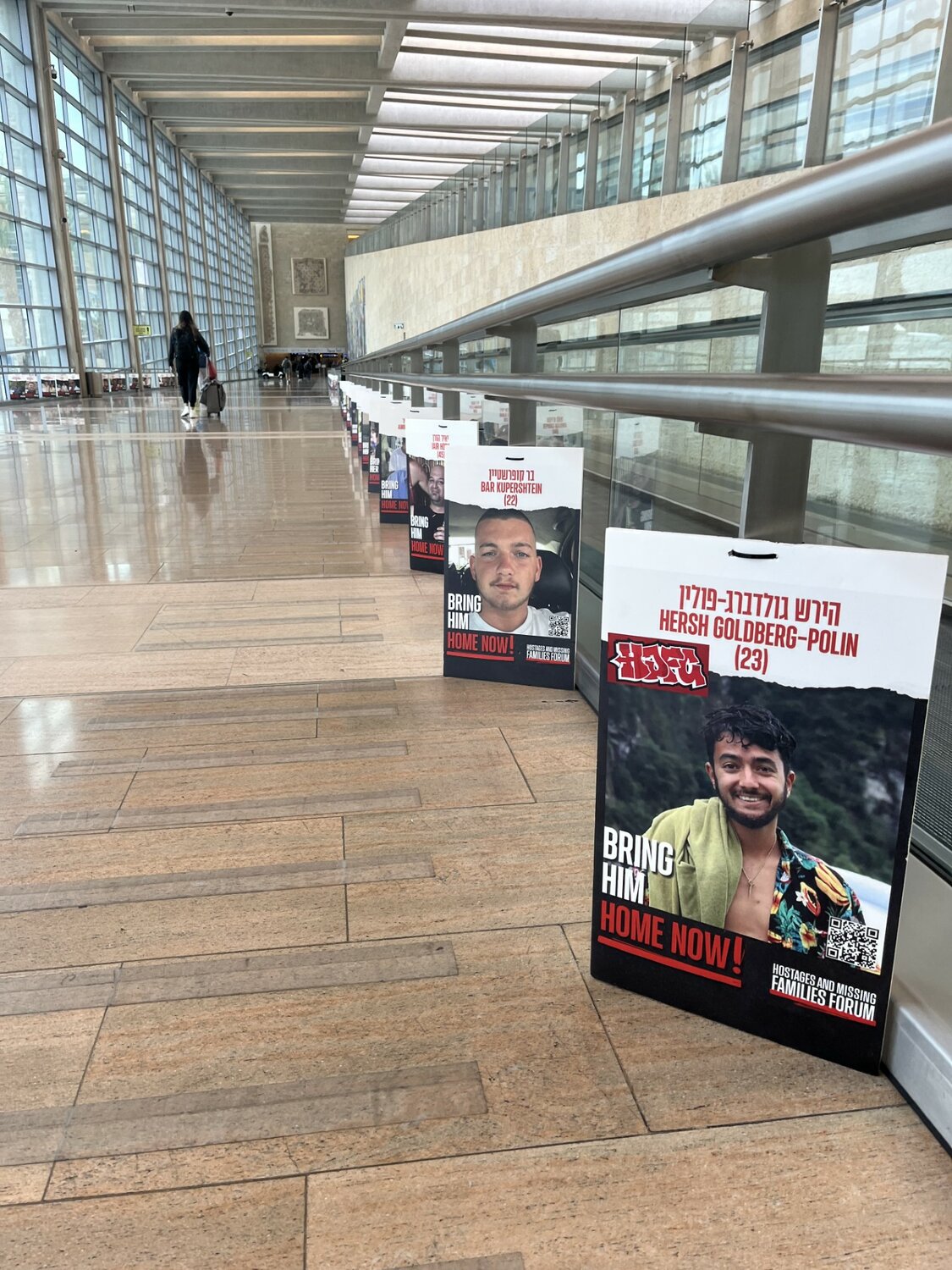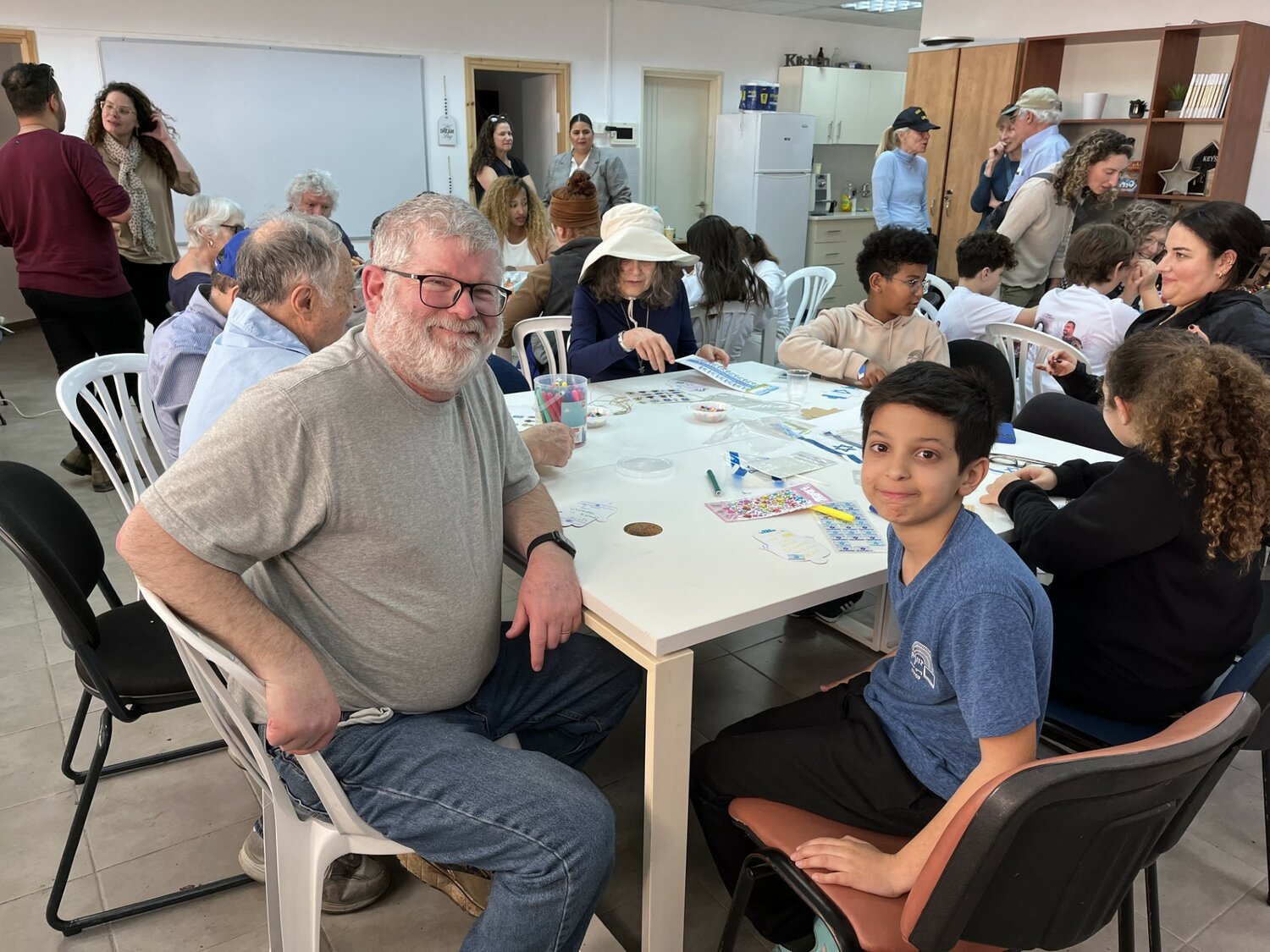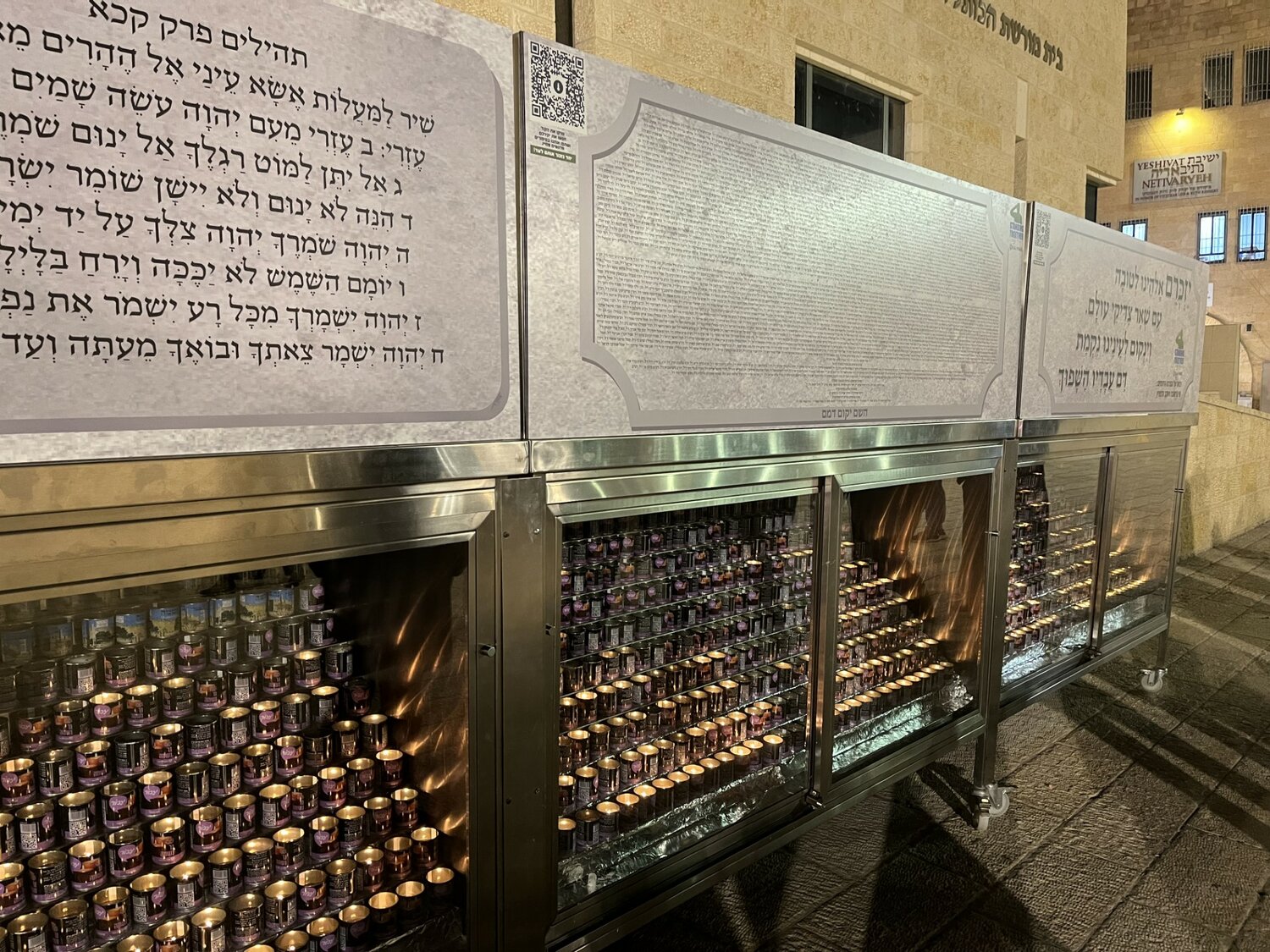A nation in agony
The moment I saw the email from the Jewish Alliance of Greater Rhode Island about the Solidarity Mission to Israel, I knew I had to go. It was early December, and I knew that the pain of the war was mounting for Israeli families with sons and daughters in the IDF, for the tens of thousands of Israelis evacuated from their homes, and for the families of the hostages in Gaza. I had to be with them.
The 22 people on our mission were diverse, including two rabbis, a newspaper columnist, a grandfather and his granddaughter, a woman who had never been to Israel before, a mom with young children at home, an Israeli, non-Jews and Jews who identified with Reform, Conservative and Orthodox Judaism. None of the distinctions mattered. We were all going for the same purpose – to be with the Israeli people at a time when they needed our support.
Arriving at Ben Gurion Airport delivered the first shock of the trip for me: I had never seen the airport so empty. Israel is a nation that normally receives millions of visitors each year. During this time of war, the number of people entering has slowed to a trickle.
The glass-walled hallway from the terminals to passport control felt ominously empty. In the place of thousands of tourists, there were posters with the names and faces of the hostages in Gaza, with the words, “Bring them home now!”
We would see signs, posters and billboards like these everywhere we went for the next three days – a constant reminder of the agony the nation is going through as it hopes and prays for the return of the captives.
After a drive to Jerusalem, dinner at our hotel, and a briefing from an Israeli analyst, many members of our group chose to walk to the Western Wall. We saw the emptiness of the Old City as we made our way through the ancient alleyways.
Standing in the plaza in front of the Western Wall is, for me, a transformational experience. In this place, I feel myself as part of 3,000 years of our people’s history, right down to my bones.
I placed my hands on the wall and prayed a prayer for peace and wholeness.
At the back of the Western Wall plaza, there is a new memorial: A plaque inscribed with the names of the 1,200 civilians and military personnel who were murdered by Hamas on Oct. 7. Below the names are row after row of memorial candles, one for each person. The memorial sums up the sadness, despair and darkness that Israel is living through right now.
The next morning, we began our first full day of talking with Israelis to learn about their individual experiences. We started with a visit to a farm in the small moshav (a cooperative community of farmers) of Ahituv, in central Israel, near Hadera. We went to work preparing a field for a new planting of zucchini. As we tore up the old plants, we were encouraged to enjoy the flavor of the few remaining fruits still on the tall vines.
I spoke to the young Israeli woman who was in charge of the farm. She expressed her gratitude that we had traveled all the way from the United States, not just to work on the farm, but to show solidarity with the Israeli people during the war. She told me that, in her view, Israel depends not just on its own people, but also on the love and support of Jews from around the world.
That afternoon, we traveled to Afula, a city in Israel’s northern district that is home to about 60,000 people. Afula is special to the Rhode Island Jewish community because of its “Twin Towns” pairing with Providence. The Jewish Alliance supports several social-service organizations in the city, and we were there to visit one of them.
Youth Futures is a group that provides trained mentoring and family support for at-risk children of elementary-school age. The organization helps thousands of these children, of all races and religions, especially those in communities that are put at risk by poverty.
At Youth Futures, I met Yair, a smart and funny 10-year-old. Yair loves soccer and Justin Bieber. (He was a bit disappointed that I don’t know much about either.) He and I were asked to work on an art project, each of us decorating a hamsa with words that express our hopes for Israel. When I asked Yair what he wanted to put on his hamsa, he told me that he wanted to say that he wished “that the kidnapped will come home.” I felt my heart sink in my chest when I heard him say that.
Seventeen of the people taken hostage by Hamas on Oct. 7 are the same age as Yair or younger. Two of those children are still being held in Gaza. One of them, Kfir Babas, had his first birthday in captivity on the last day of our trip. I couldn’t stop thinking about that.
I also could not stop thinking about how, at age 10, Yair should be thinking about his favorite soccer team, not about whether kidnapped children will ever see their parents again.
On the last full day of the mission, we visited Mount Herzl Military Cemetery, in Jerusalem, to pay our respects to Israel’s fallen soldiers. Before we even entered the cemetery, our group came across a group of soldiers who were there as part of their basic training. We spoke with these young men, all of them about 20 years old, about serving in Israel’s military, especially at such a difficult time.
One of the young soldiers told us, “On Oct. 7, Israel got a big slap on the face. It was a wake-up call for us, a reminder that in order to have a state, the Jewish people have to be ready always to defend ourselves.
“That’s not just a message for us here in Israel. This is also a wake-up call for you, Jews living in America, and around the world. We are so grateful that you have heard the call and are standing with us.”
Later in the day, we traveled to Tel Aviv to visit Hostages Square, the public plaza in front of the Tel Aviv Museum of Art that has become Israel’s unofficial center for a national conversation about the hostages. In addition to the constant presence of family members of the hostages, the square includes displays and art installations calling for the hostages to be returned home.
There, we spoke to a man carrying a sign with the name and photo of Omer Wenkert, one of the approximately 130 hostages still held by Hamas in Gaza. He told us that Omer is a 22-year-old restaurant manager and that he was one of the people at the Supernova Music Festival on Oct. 7, when Hamas came shooting in all directions. About 364 people were killed at the festival and about 40, including Omer, were kidnapped.
The man in Hostages Square also told us that Omer Wenkert is his cousin and that he comes to the square whenever he can to tell Omer’s story.
Omer suffers from ulcerative colitis, an autoimmune condition that requires daily medication to prevent debilitating pain and illness. His family is terrified that, having spent months in captivity without his medication, the colitis may kill him. They have received no information about him since the day of his abduction, so they know nothing of his current condition, or even if he is alive.
I asked Omer’s cousin what he would like Israel’s government to do about the hostages. He told me, “Bringing home the hostages has to be the top priority. Nothing else is as important.”
This is a common theme at Hostages Square. The families echo a deep concern that is heard throughout the country. Israelis feel very let down by their government. The intelligence services were badly fooled on Oct. 7, and there is a sense that the tragedy should have been prevented.
There is also a feeling in Israel – one that I believe few people outside of the Middle East understand – that the Jewish state fears for its very existence and for the life of every Jew in it right now. Israel may have a huge military advantage over Hamas, but Hamas is just one piece on a very large chessboard set against Israel. Israelis see the Hamas attack as just the first move in a long-term strategy to wipe out the Jewish state.
To the north, Hezbollah has a much larger army and much more advanced weaponry than Hamas. A full-out war with Hezbollah would be devastating for Israel, especially if the nation had to fight wars simultaneously in its north and south.
And, of course, there is Iran. Right now, Iran is content to menace Israel through proxies like Hamas, Hezbollah and the Houthi movement in Yemen. However, with more than half a million active-duty military personnel, long-range missiles, tanks and a navy, Iran would pose a terrible threat to Israel in a direct war.
This is a big part of the reason why Israelis of all political leanings are mystified and outraged by the accusation of genocide against their country in the International Court of Justice. To Israelis, it is overwhelmingly obvious that the intention of Hamas, Hezbollah and the Houthis is to annihilate Israel, and, not incidentally, every Jew in the world.
Israel’s enemies are explicit in expressing their genocidal intentions. Yet Israel is the country accused of genocide when it defends itself in response to the atrocities of Oct. 7.
Israelis are, of course, aware of the brutal suffering their military is inflicting on the people of Gaza. They believe that it is the only way to reach the leaders of Hamas, who are responsible for the murder of 1,200 innocent people and the kidnapping of more than 240. There is an overwhelming belief that if Hamas is not eliminated, another attack, as bad or worse, is sure to come. Israelis believe that this is a war they cannot afford to lose.
For our Solidarity Mission group, the trip was a response to a call that we could not refuse. We returned from Israel with a renewed sense of commitment to the state of Israel and a dedication to support its people.
Am Yisrael chai. The people of Israel are alive.
RABBI JEFFREY GOLDWASSER is the spiritual leader of Temple Sinai, in Cranston.













